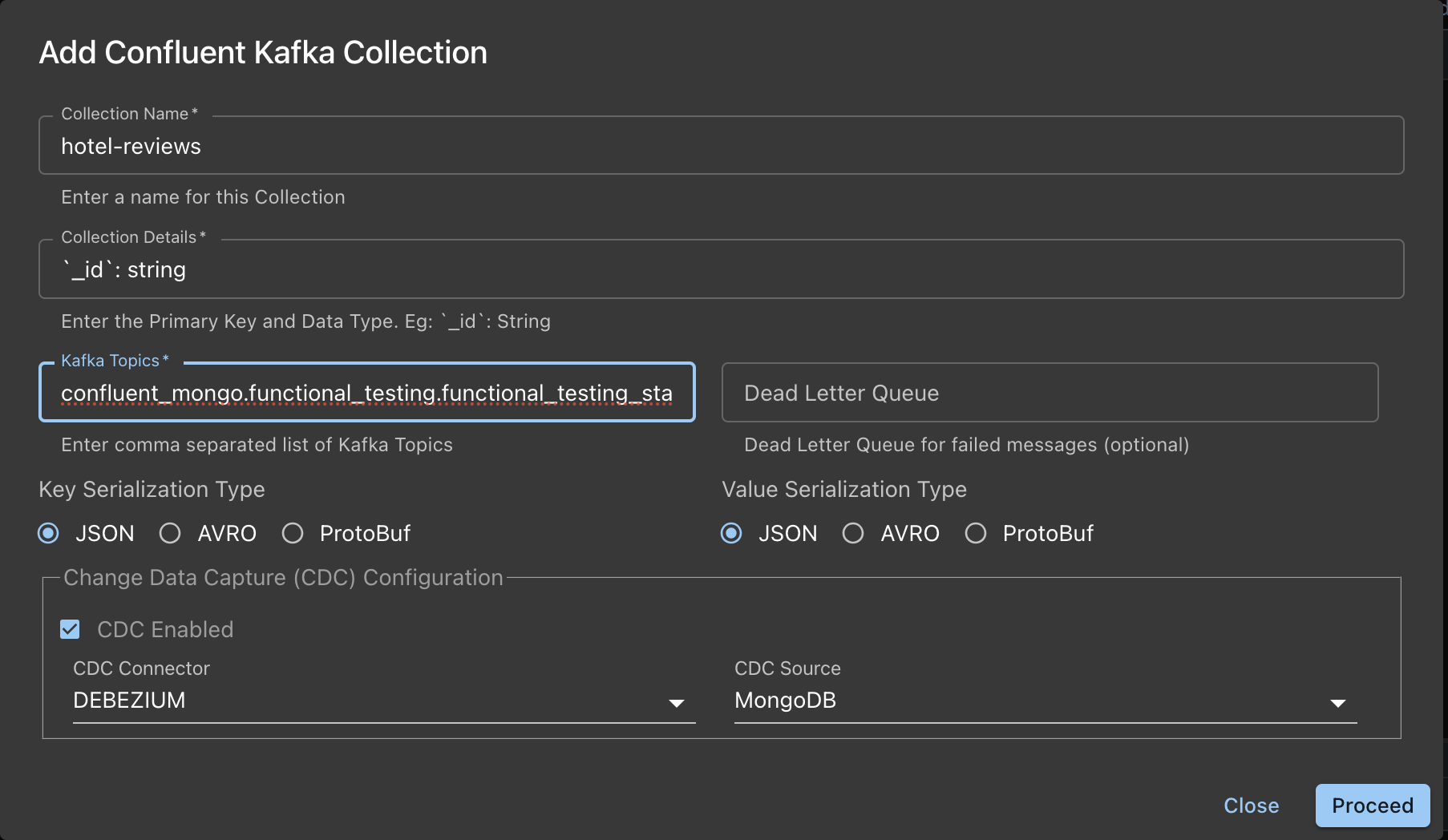Confluent Cloud Platform Link and Collections
Create a Collection linked to Confluent Cloud Platform.
Step 1: Add Confluent Cloud Platform Link Reference
Click the LinkRef button in the Links Table ToolBar. This will bring up the list of choices: After adding the Link Reference, you will see:

- Click on the Link Reference
- This will enable to Add Collection button
- Note that the Link is not connected. Don't connect it yet.
Step 2: Add Collection (MongoDB)
 This brings up the dialog box.
This brings up the dialog box.
- Collection Name: Name the Collection
- Collection Details: This is the Primary Key and the Data Type of the Key for the Collection. You can get it from the Confluent Cloud Platform Admin for the topic (next)
- Kafka Topics: Comma delimited list of Kafka Topics for a given Data Source. Get it from the Confluent Cloud Platform Admin.
- Dead Letter Queue: Optional. Get it from the Confluent Cloud Platform Admin.
- Key Serialization Type: Required. Get it from the Confluent Cloud Platform Admin.
- Value Serialization Type: Required. Get it from the Confluent Cloud Platform Admin.
- CDC Configuration
- CDC Enabled: Get it from the Confluent Cloud Platform Admin.
- CDC Connector: Fixed for now.
- CDC Source: Choices are MongoDB/mySQL/Postgres
- The info box shows you the DDL being run
- Dataset and Collection is synonymous
Post Add Collection
This example shows additional Links and Collections.

- The Collections have been added
- Data is still not fetched yet, the link is not connected!
- Now it time to Connect to the source to fetch the data into the Columnar Collection.
Step 3: Connect the Link
- Set the Connect Switch to ON
- This will fetch the documents into the collections
- Note that Items still do show the number of documents
- The Schema column still shows a red tick mark
Step 4: Get Schemas (optional, but nice)
- Click the Get Schemas button. It:
- Fetches the item count
- Fetches one sample document and attaches it to the Collection
- Fetches the schema for that Collection and attaches it to the Collection
infoThis is an expensive operation and need to be performed just once.